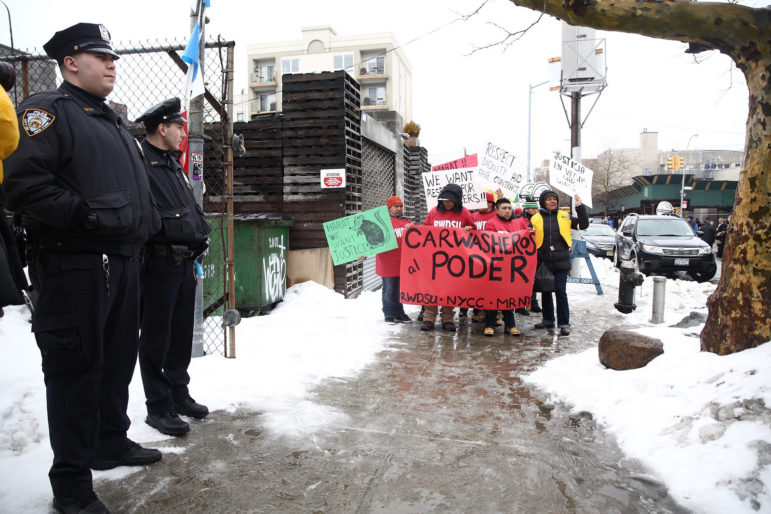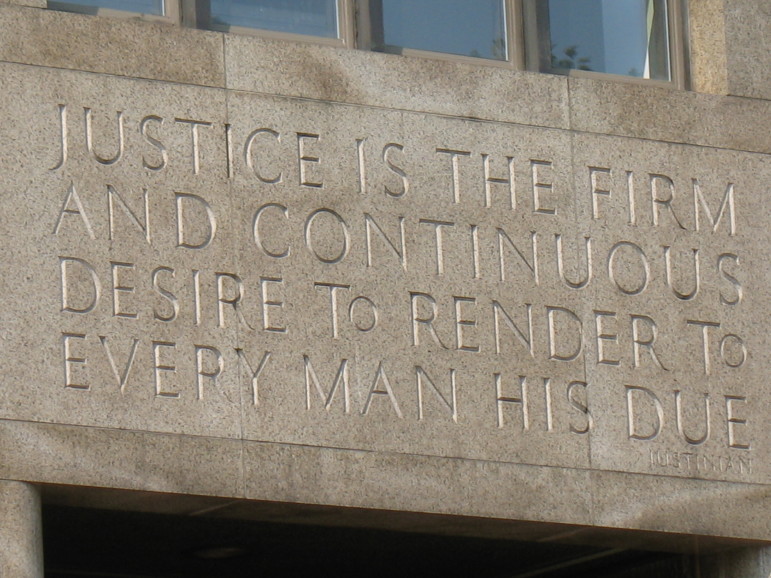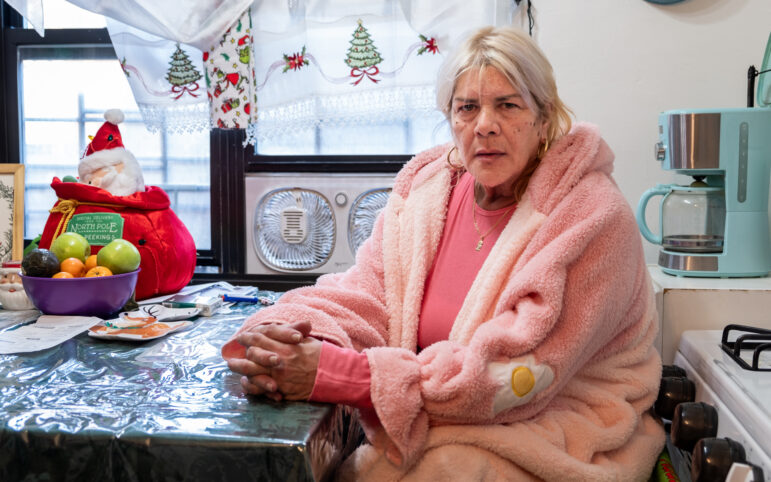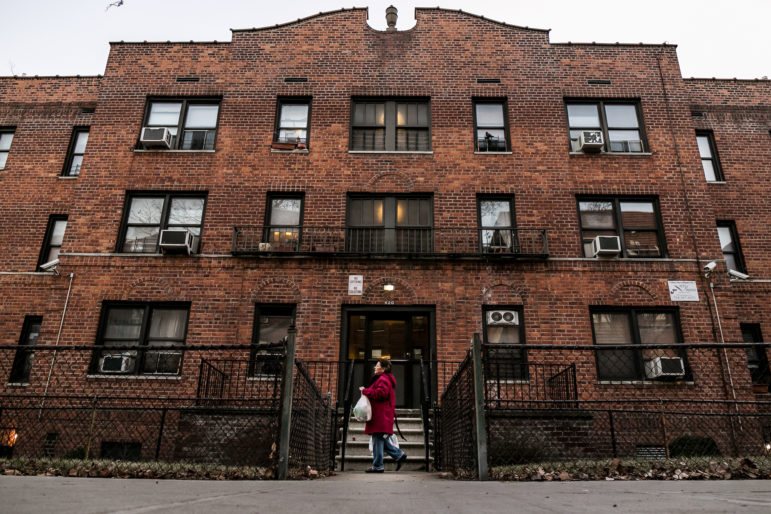
William Alatriste for the New York City Council
March 2015: Carwasheros protest. The Council and the mayor acted, but a lawsuit has iced efforts to regulate the industry.
More than a year after Mayor de Blasio signed the Car Wash Accountability Act, the legislation is at a standstill—frozen by a lawsuit filed by car wash owners. But city officials told City Limits this week that they will in the near future issue regulations for implementing the law, a step that will allow the legal fight over it to move ahead.
Meanwhile, the Retail, Wholesale, and Department Store Union (RWDSU)—a major force behind the 2015 law—says it is negotiating new contracts with owners at the 10 car washes it successfully organized and is still “actively organizing in the industry.”
The backdrop to both the unionizing drive and the legislation is the allegation that car-wash owners have exploited their workers: paying their employees less than minimum wage and sometimes even holding tips back from them. Car-wash workers, who call themselves carwasheros, have told advocates they might go home with a weekly salary of $300 or less. Some said they would work more than 10 hours a day but not receive overtime.
The car-wash workforce is mainly made up of immigrants who are not always aware of their rights as workers. Immigrants are twice as likely to endure wage violations than U.S. citizens, according a report by the office of Public Advocate Letitia James.
Some of the accusations have been verified by enforcement agencies. John Lage, the man the Daily News dubbed as the “Car Wash Kingpin,” had to pay more than 1,100 employees some $3.4 million in back wages and penalties in 2009 under a deal with federal labor officials. In 2014, he paid $3.9 million under a separate settlement with the New York attorney general.
After fierce lobbying by immigrant workers and the union, the Council in 2015 passed the Car Wash Accountability Act. It would require car wash operators to obtain a license from the city that must be renewed periodically and could be withheld if an operator lacked “good moral character,” failed to maintain sufficient insurance or didn’t secure a surety bond. The latter was intended to ensure that back wages could be paid in the event of a judgement against the company.
After the act was signed last June, the Association of Car Wash Owners (ACWO) sued in federal court, claiming the city was exceeding its authority and interfering in the collective bargaining process. As a result of this lawsuit the Car Wash Accountability Act was delayed, and the lawsuit itself was put on hold until the Department of Consumer Affairs promulgated regulations to put the law into action.
After collecting comments on draft rules, DCA is preparing to issue the final regs, although there is no firm timeline, a spokeswoman told City Limits this week.
“The lawsuit is still delaying the implementation of the law, which is a shame because workers need it,” says Janna Pea of the RWDSU. “We don’t know exactly what the timing will be. But we hope soon and are confident it will be upheld.”
Advocates say wage and labor-law violations remain common but conditions have improved because of the union work and the formation of WASH New York, a joint campaign of Make the Road New York and New York Communities for Change.
At two city car washes this week, workers talked about their conditions.
Refugio Denicia, 37, who has been working for Off-Broadway Car Wash in Elmhurst, Queens, for 17 years, said, “The conditions have definitely changed since we got into the union. Before we were paid around $4 an hour, and now it’s $9 an hour, plus some tips.” Denicia, a native of Mexico, says the contract came three years ago after the car washers began a strike until the owner agreed to negotiate with the union manager.
But at least one worker at 138 Lube LLC in the Bronx, a non-unionized car wash, didn’t seem fazed by his lack of union representation.. “I haven’t been here that long, but I can’t complain they pay me well and have never given me any trouble,” said Simon Herculan, who said his hourly wage was $8, plus tips.









One thought on “City’s Car-Wash Regulations Still on Hold as Union Push Continues”
The idiots at the RWDSU are going to push car-wash workers out of their jobs.